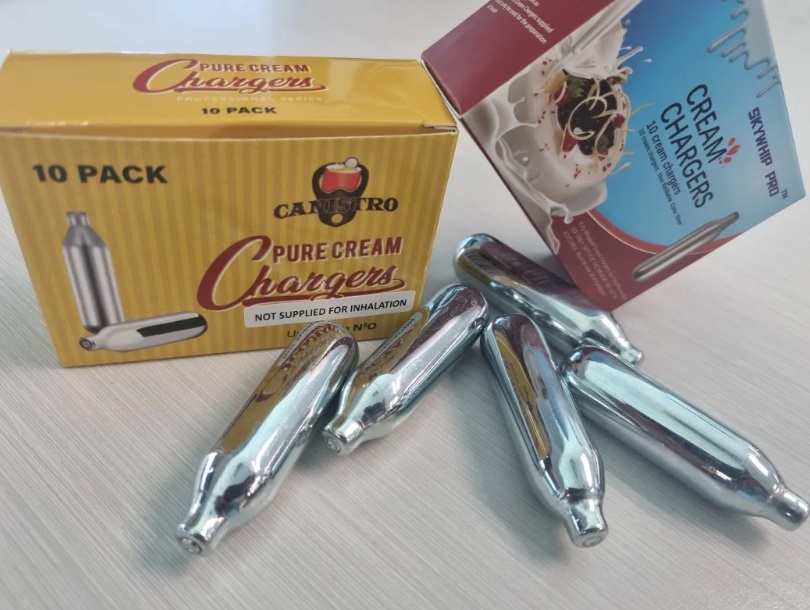
Nitrous oxide is a colourless gas also known as laughing gas, which is used as a painkiller in medical and dental procedures.
But if it is not used correctly, it can potentially cause long-term health damage.
Health Minister Shane Reti said it was illegal to sell it for recreational use, but vape stores included it in products known as nangs, for its psychoactive effect.
"Nitrous oxide has several legitimate uses, but we also know it is increasingly being used as a recreational drug," he said.
"Smokefree enforcement officers have even reported seeing nitrous oxide products - nangs - for sale in vape stores. This is extremely concerning.
"Given the significant risks and the potential for long-term damage, and a number of overlapping portfolios in this area, last month I requested officials look at options on the government's behalf to address it.
"Last week, I received advice from the Ministry of Health about a change in approach that would clarify the law for suppliers and users of nitrous oxide. This will enable police to prosecute the sale and use of nitrous oxide for recreational use."
Whereas nitrous oxide had been considered under the Medicines Act 1981, Medsafe now advises that when it is sold primarily for the purpose of inducing a psychoactive effect, the Psychoactive Substances Act 2013 applies.
No products containing nitrous oxide have been approved for use under the Psychoactive Substances Act, making it illegal to sell nitrous oxide or products containing nitrous oxide for recreational use. A breach of this regulation is punishable by either prison time or a fine.
"The proliferation of nangs - particularly targeted at our young people - is a significant public health issue with potentially serious consequences," Dr Reti added.
"Police and health professionals have reported recreational use of nitrous oxide is on the rise, a trend seen in other countries like Australia and the UK.
"This reinforces the gravity of the situation and the need for swift action. This cannot continue.
"I have directed the Ministry of Health to monitor the effectiveness of this change and provide ongoing advice about whether further restrictions are necessary to keep New Zealanders safe."
The Drug Foundation said there were more harmful drugs which need attention, following the government's announcement.
The foundation's policy director, Dr Jacek Kolodziej, said while there was some harm caused by the drug, there were other substances he wanted a focus on.
"Some time ago there was another paper released ranking the substances that caused the most harm in New Zealand, and the first substance was alcohol, that was followed by methamphetamine.
"Nitrous oxide, as far as I remember, was among the few that caused the least harm."
Dr Kolodziej said it was a good idea to restrict access to the drug, but did not want to see users penalised.
"We would've suggested not penalising users, it's not very effective and leads to a reduction in people seeking treatment."
Meanwhile, Students for Sensible Drug Policy Dunedin's president Max Phillips said the government was hypocritical for cracking down on nitrous oxide while scrapping a ban on tobacco being sold to anyone born after 2008.
Cigarettes did far more harm in the community, and the move was an easy way to score political points, he said.
"There's confusing and inconsistent drug policy in New Zealand when drug policy could be easily regulated. No policymakers are bringing them all into line.
"We want regulation not punishment ... prohibition makes it harder to access help."













